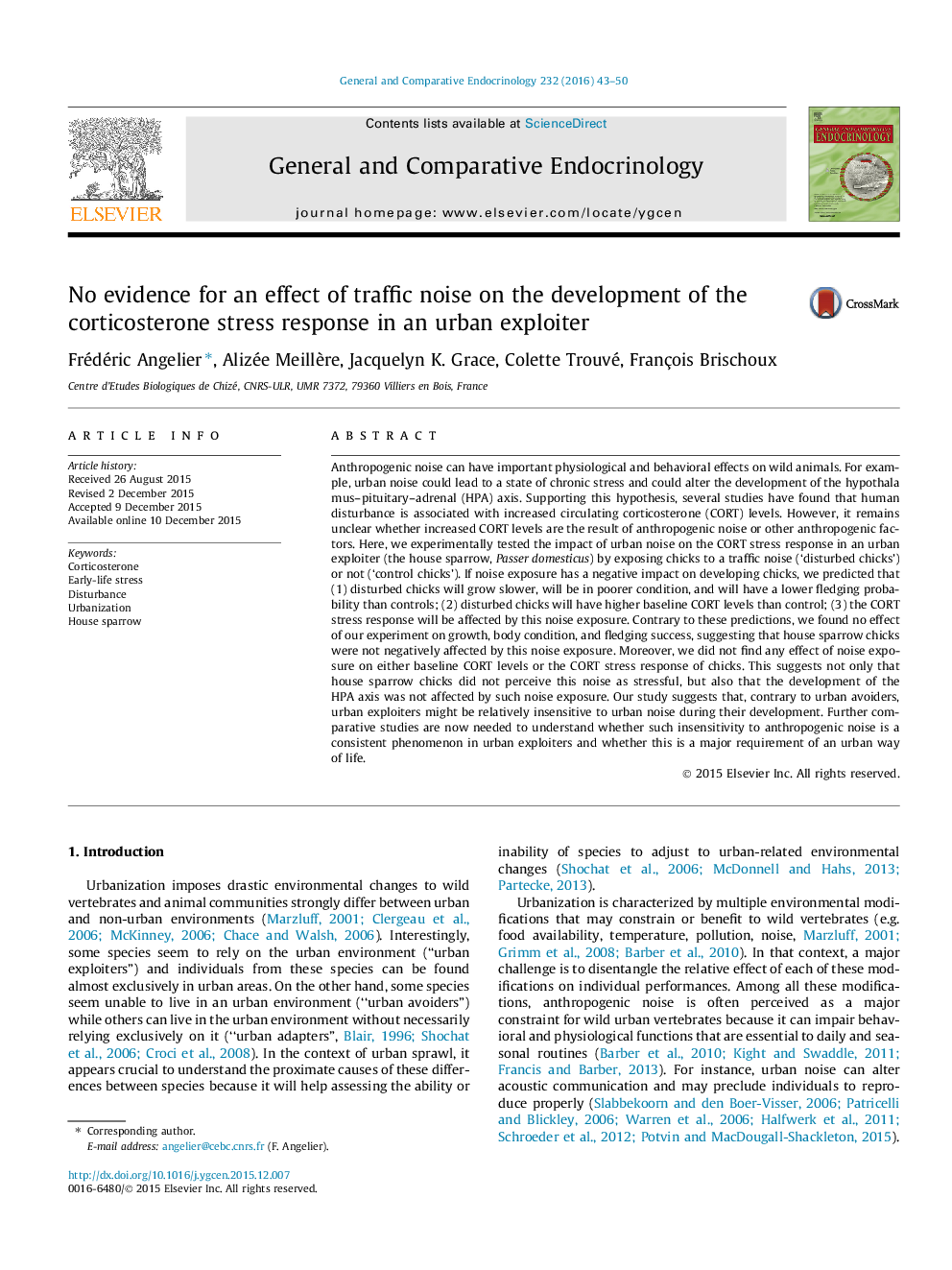| Article ID | Journal | Published Year | Pages | File Type |
|---|---|---|---|---|
| 5900800 | General and Comparative Endocrinology | 2016 | 8 Pages |
â¢We tested the impact of noise on the corticosterone stress response in nestlings.â¢Growth, condition and fledging success were not affected by noise exposure.â¢Corticosterone levels were not affected by noise exposure.â¢The development of the HPA axis was not affected by noise exposure.â¢Urban exploiters may be relatively insensitive to urban noise.
Anthropogenic noise can have important physiological and behavioral effects on wild animals. For example, urban noise could lead to a state of chronic stress and could alter the development of the hypothalamus-pituitary-adrenal (HPA) axis. Supporting this hypothesis, several studies have found that human disturbance is associated with increased circulating corticosterone (CORT) levels. However, it remains unclear whether increased CORT levels are the result of anthropogenic noise or other anthropogenic factors. Here, we experimentally tested the impact of urban noise on the CORT stress response in an urban exploiter (the house sparrow, Passer domesticus) by exposing chicks to a traffic noise ('disturbed chicks') or not ('control chicks'). If noise exposure has a negative impact on developing chicks, we predicted that (1) disturbed chicks will grow slower, will be in poorer condition, and will have a lower fledging probability than controls; (2) disturbed chicks will have higher baseline CORT levels than control; (3) the CORT stress response will be affected by this noise exposure. Contrary to these predictions, we found no effect of our experiment on growth, body condition, and fledging success, suggesting that house sparrow chicks were not negatively affected by this noise exposure. Moreover, we did not find any effect of noise exposure on either baseline CORT levels or the CORT stress response of chicks. This suggests not only that house sparrow chicks did not perceive this noise as stressful, but also that the development of the HPA axis was not affected by such noise exposure. Our study suggests that, contrary to urban avoiders, urban exploiters might be relatively insensitive to urban noise during their development. Further comparative studies are now needed to understand whether such insensitivity to anthropogenic noise is a consistent phenomenon in urban exploiters and whether this is a major requirement of an urban way of life.
